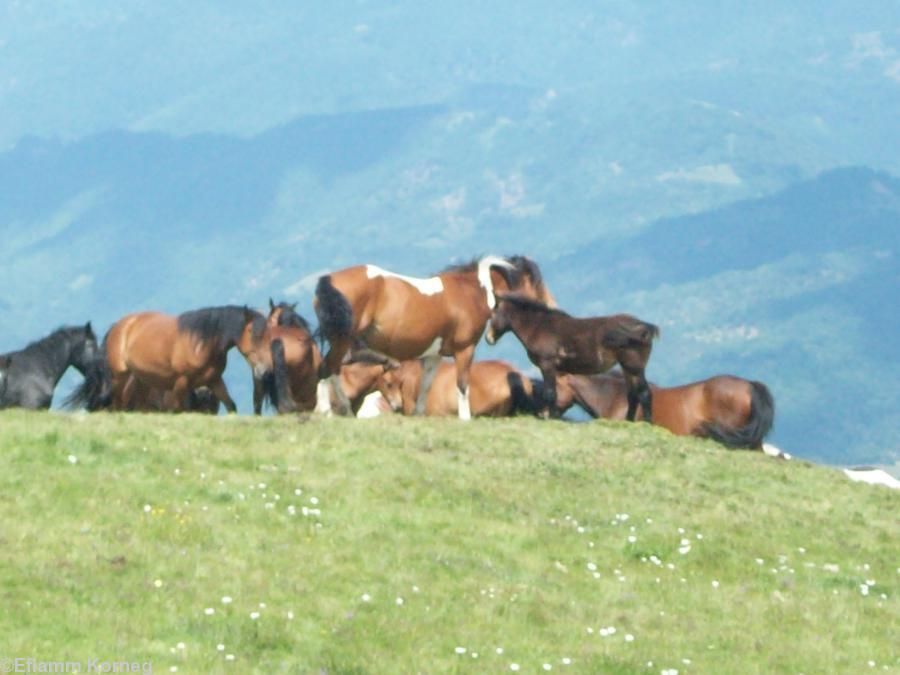
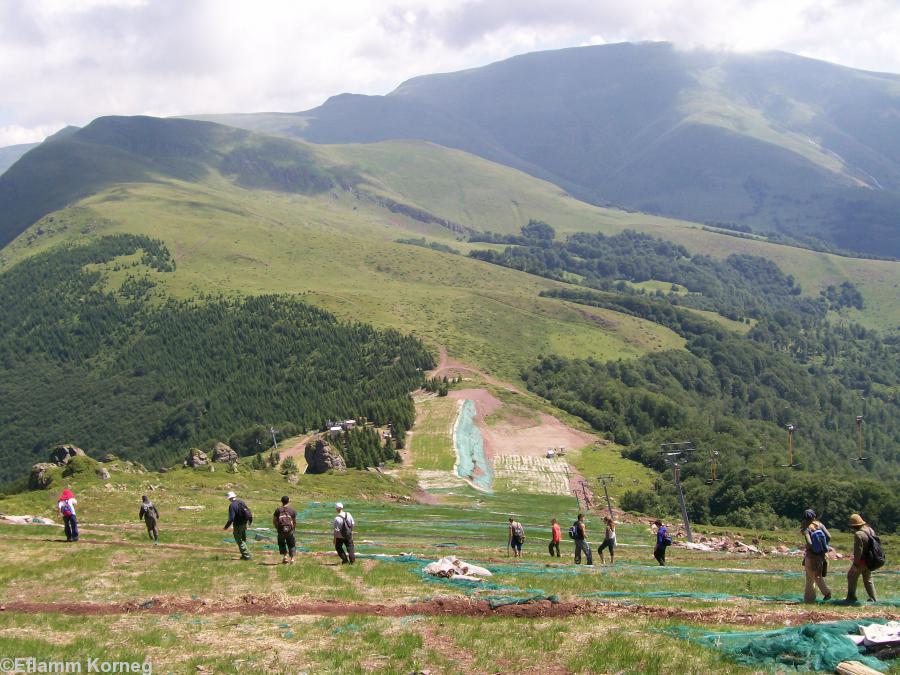
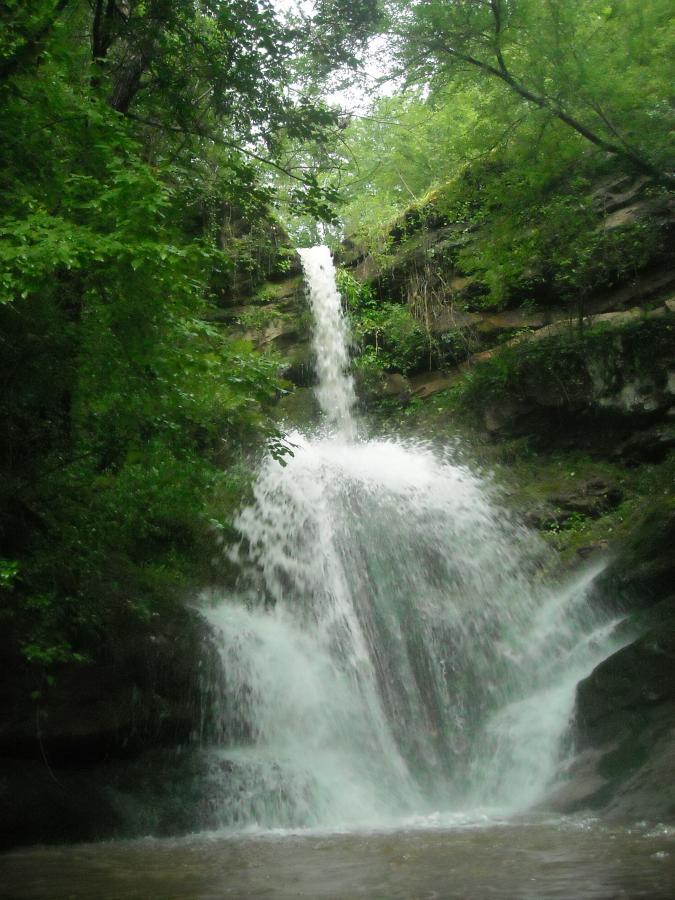
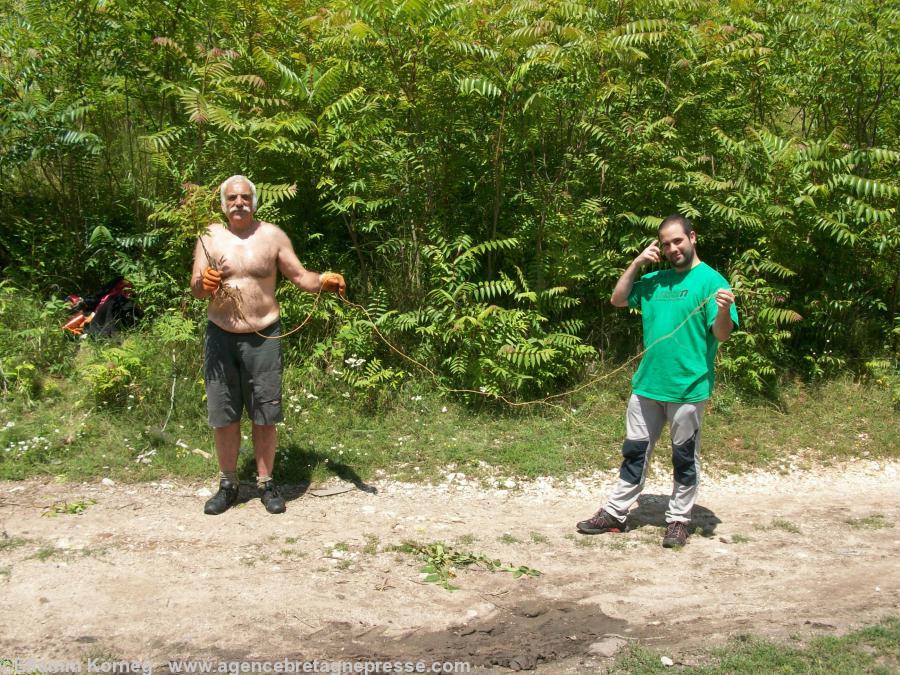
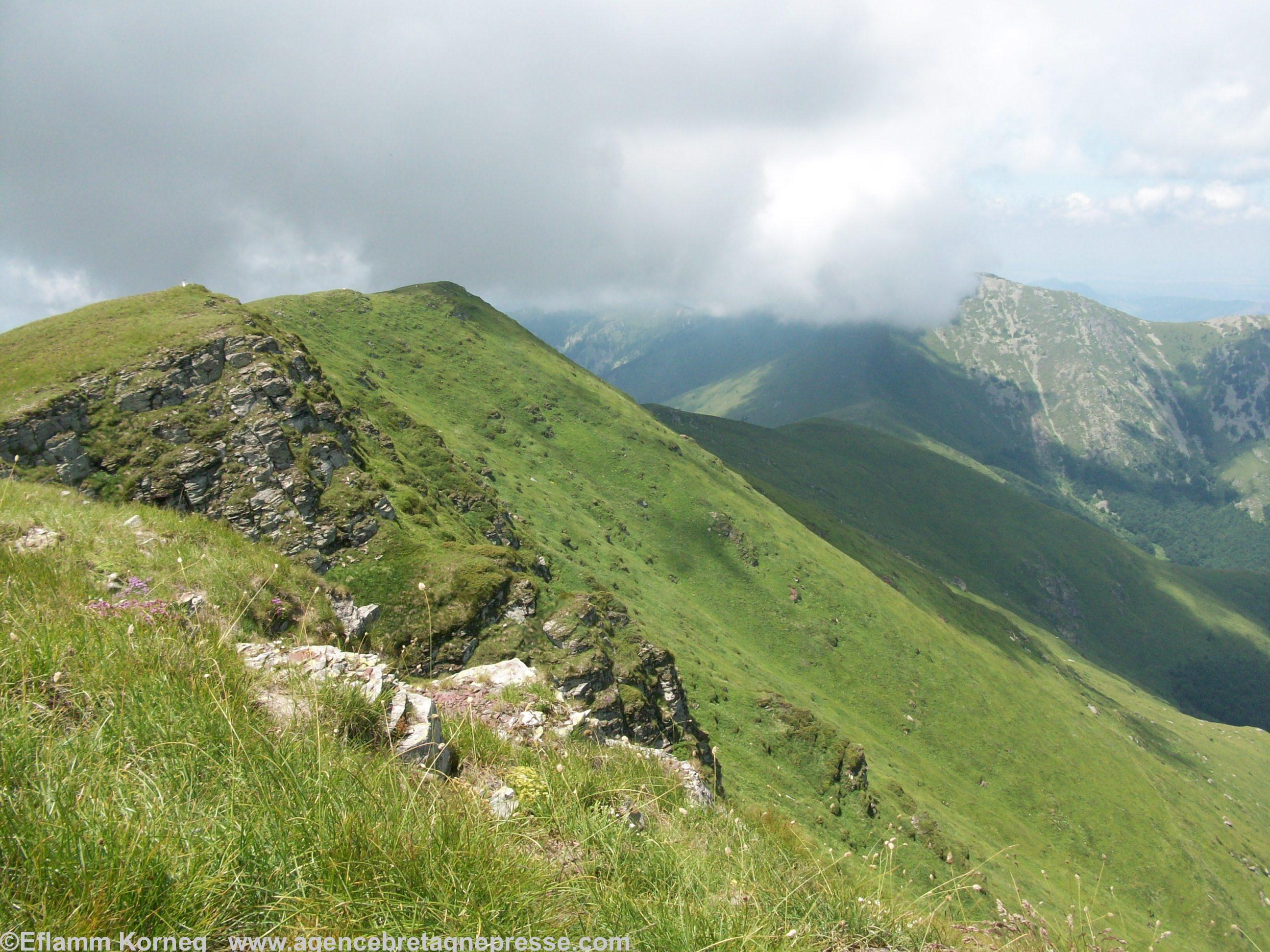
What is the common fate between a village in south east Serbia and Brittany? Temska is a small village near the bulgarian boarder in a beautiful and pure nest scheduled
What is the common fate between a village in south east Serbia and Brittany?
Temska is a small village near the bulgarian boarder in a beautiful and pure nest scheduled as a national parc. A perfect place along a strong river with luxuriant forest full of gale, tasty mushrooms. Water is everywhere, waterfalls by tens flowing from the granit roc, a large lake over the hills attracts the youth. One of the nicest and oldest ortodoks monastery is also in Temska. On the top of the mountains we find very rare plants like the orchids, butterflies, wild horses, insects studied by all the Balkanik community if scientist. Temska is living in a small autarky just as a Breton village in the 50's. Over there they make their own wine, their own rakia - the Balkanik brandy. They use to have wonderful kitchen-gardens with hot and sweet paprika,fruits and vegetables. They make their cheese goat,their meet from the pigs and the cheep,they get fish in the river.
Like a paradise? Almost. Almost because Temska is threatened by many ecological dangers.In the 70's appears a new plant in this land. It becomes to be injurious and invasive. Her latin name is alianthus altissima, called in English the Tree of heaven or the acid tree (like in Serbian kiselo drevo - acid tree). It's proliferating as quick as lightning, growing everywhere in the mountains. The acid tree can adapt from every kind of situation, it grows on the roc and even in the river! This invasive tree is changing step by step the great ecosistem of Stara Planina. Their roots make a real net under the soil and by the wind, the seed fly far away without despite. The tree of heaven becomes now a big problem for the inhabitants. European volunteers and especially from Brittany and Bask country came to the village in order to cut the plant with machets and axes. Unfortunately each year the tree comes back stronger with new suckers. The acid tree makes the soil poorer and more acid, it threatens the biodiversity and poisons the goat milk when the animals eat the leaves. In Brittany too, we get this tree but according to botanic specialists it is under control. However in the north of Paris along the RER line in La Courneuve, plenty of them are growing freely.
The authorities - specially in Belgrade - ignore the problem of this tree and this small enclaved village. The main consequence of this situation is the waste. Actually there is no solution to clear the garbage. No sorting, no containers and no way to carry the garbage till Pirot 15 kilometers from Temska, the nearest town with the staff to select and collect the waste. So the inhabitants have 2 "technics". They burn their own garbage or they dump them down the river. It is a daily catastrophe. Specially when we think about the fantastic possibilities of Temska. A lovely place for the green tourism, trekking, organic agriculture. Potentialy... It reminds us of the same kind of situation in many places in Brittany. The wonderful Plestin bay suffers from the green sea-weed since 30 years. It's stinking so heavily sometimes than we are in a hurry to shut the windows quick and cross the way as fast as possible. Like in Temska, the attraction of the Saint Efflam bay should be strong but the pollution prevents from developing better these areas. Such a waste.
When the Serbian minister of Environment came in Stara Planina it was to build a ski center, 2 years ago in the heart of the national parc, despite the law. For wich benefits for the local people? To get artificial snow, they decided to pump into the river. Full pieces of the mountain had been dismasted to make the snow tracks. Temska finds everyday in the river plastic bags from the ski center. People refuse this situation. Dulle is carpenter in the village, for him the biggest problem is the ecology. He says it's not too late to react. Near his work-room, the river is flowing. His neighbours go to throw the garbage in the river. They don't really have another alternative. Dulle says: we need help, we need money because the government won't do anything for us. Like a few people here, he asks for a European cooperation. They need 4 or 5 containers and a small truck to carry the waste to Pirot. It should be a good beginning. It's time to help them. The procesus of rural desertification is going on and more and more young people go to work in the cities and come back in the summer time only. At school there are 50 pupils but tomorrow? Temska won't die if the village can convince how wonderful is it's touristical and ecological potential.
Efflam

Commentaires (1)